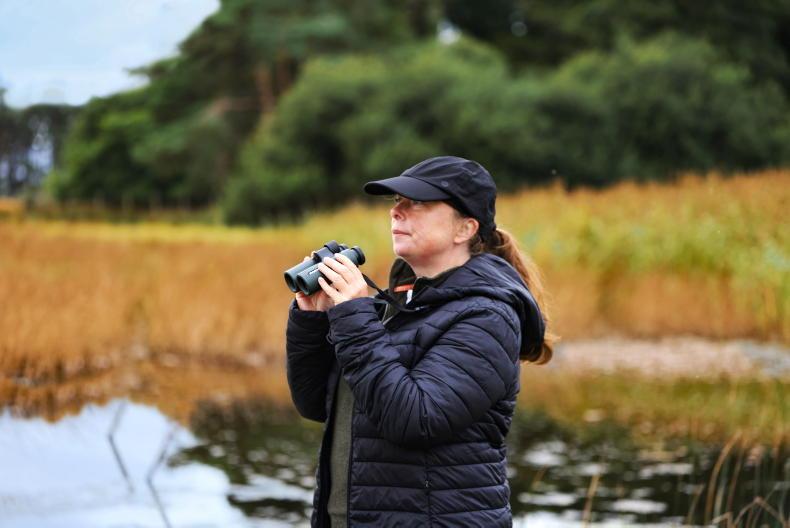Laurence Shalloo is senior principle research officer with Teagasc, at the Animal & Grassland Research and Innovation Centre, Moorepark, Co Cork, but hails from the west of Ireland, Kilfenora, Co Clare.
He grew up in Clare on the family farm, which was initially a dairy farm but changed to a suckler and beef farm in the early 2000s – a move that Laurence puts down to the viability of small-scale dairying at that time and his parents wanting to step back a little. His brother Brian farms there now.
A slow-burning start
Laurence has dedicated his entire adult life to agricultural research, so it came as a complete surprise to learn this dedication did not begin in school. In fact, he is proof that while the Leaving Cert (LC) may be a steppingstone to your career, it certainly does not define it.
I only really started to study when I went to college
“I wasn’t any way inclined academically at school, I had no interest,” he admits. “I only really started to study when I went to college and then never stopped.”
It was actually from his mother’s encouragement that he attended college. Laurence enrolled in Waterford Institute of Technology (WIT) completing a certificate in agricultural science, it was during that course he found the study bug. It brought out a natural curiosity in him, which led him to University College Dublin (UCD).
I just liked it
“I would have been a long way off the LC points for UCD because I didn’t do anything up to that point,” he explains, “but I just liked it.”
No looking back
Laurence went on to complete his degree in animal and crop production in UCD. With his interest in agricultural research fully piqued at that stage and a year back home on the farm under his belt, he arrived at Moorepark in 2000 to begin a PhD. He has not left Teagasc since.
“I’d never been to Moorepark before I came down for the interview. I would have had contacts from Moorepark about a PhD after I finished college, but I just put it off for a year,” he explains.
Essentially that work we did for the PhD has kind of built out into a bigger research programme
“Then I came down and started with Seamus Crosse on developing a model – [the Phd] was really around developing a model to quantify sustainability in grass-based systems.”
“And to be honest, it’s a similar or now more-advanced model I’m working with today, in terms of a lot of work that we do. Essentially that work we did for the PhD has kind of built out into a bigger research programme.”
Back then the term “sustainability” carried a slightly different context to what it now means in terms of agriculture and the environment and Laurence has watched the evolution of the term.
“When we talked about sustainability then it was really financial sustainability, that was the main focus to a large degree,” he says, “and obviously, for a good reason, and for a positive reason.
“It broadened out to be so much more – social, environmental, and economic. In reality, when you stand back from it, none of these three pillars work, if they all don’t work.
“For a good reason those three pillars of sustainability were brought into the mix,” he adds.
Still going strong
The PhD was four years long and since completing it, Laurence has been embroiled in research at Moorepark adding his name to many published papers and awards, adapting the model he created to benefit other areas in the agricultural sector.
He gives the examples of using the model to calculate the economic values of the breeding index, quantifying carbon footprints and by tweaking the model they could determine the proportion of grass in the diet of a dairy cows and also it was used to look at nitrogen deficiency too.
New venture
For someone who felt he didn’t apply himself in school, he has certainly made up for it by applying himself to his work in the agricultural sector as an adult.
And now he has just gained another opportunity to apply his research further as he was recently awarded the FBD sponsored Agricultural Science Association (ASA) Fellowship.
The annual programme which launched last year aims to contribute positively to scientific innovation within the Irish agri-food industry while developing Ireland’s next agri-industry thought leader.
The goal is to have a report that’s robust and that identifies potential pathways to climate neutrality
The award will be used by Laurence to further develop scientific knowledge in his chosen topic which will focus on “Strategies to achieve Climate Neutrality in Agriculture and the land use sector”.
Laurence is relishing the new project which will be delivered at the ASA conference in September 2022.
“The goal is to have a report that’s robust and that identifies potential pathways to climate neutrality,” he says.
Sound advice
For those who are maybe feeling deflated about their career prospects or have not quite found their calling Laurence says to dig deep, work hard and look at the alternatives.
“TheLC is not everything. There are ways and means of getting to the next step even if you missed the first one. If you work hard enough you will get there,” he says.
A shining example of once you have found your passion then there is no stopping you.










SHARING OPTIONS